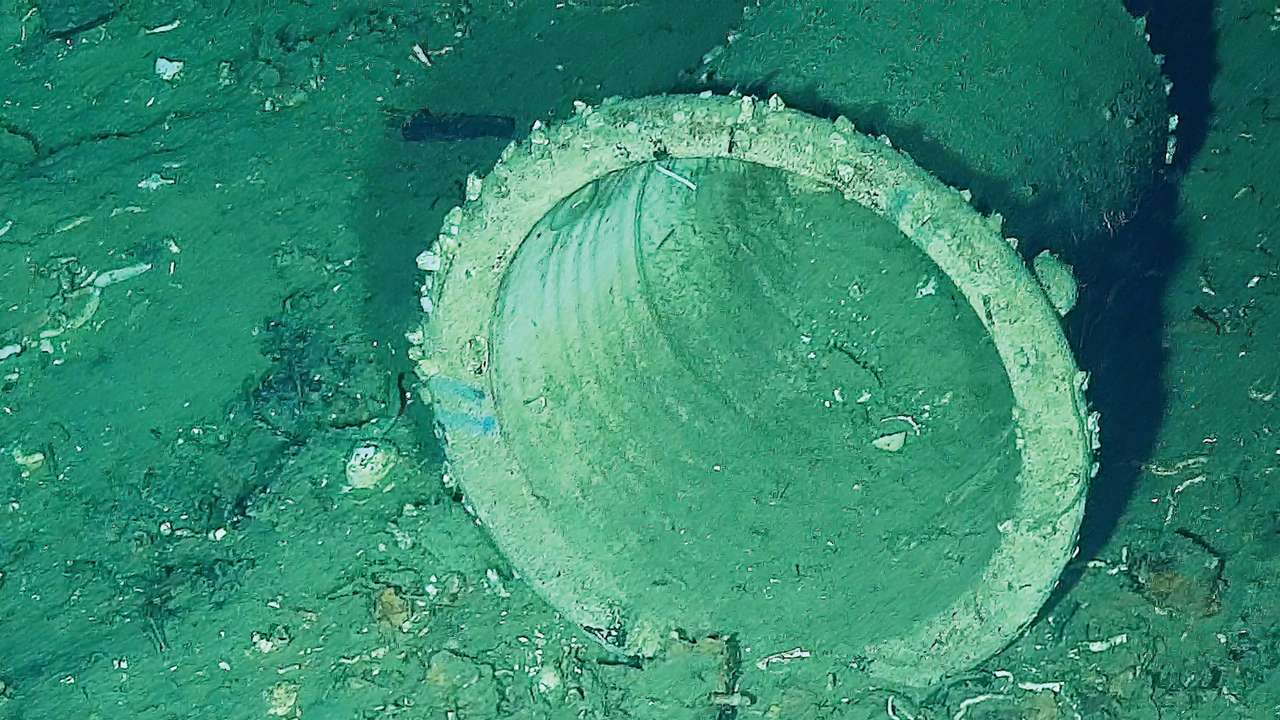Indigenous groups claim stake in sunken Spanish ship, cargo off Colombia

Indigenous groups claim stake in sunken Spanish ship, cargo off Colombia
By Emma Pinedo
Members of three South American indigenous communities have asked Spain and UNESCO to declare a Spanish galleon that sank 300 years ago with a bountiful cargo as "common and shared heritage" from which they too should benefit.
The San Jose galleon, thought by historians to be carrying one of the largest known unsalvaged collections of maritime treasures, sank in 1708 near the port of Cartagena on Colombia's Caribbean coast.
Its wreckage was located in 2015 with sonar images that identified bronze cannons, arms, ceramics and other artefacts among its cargo. Colombia announced in February it would launch an underwater exploration mission to recover the galleon.
The indigenous Killakas, Carangas and Chichas peoples estimate that their ancestors - often working in slave-like conditions - extracted the metals that make up around half of the ship's cargo from mines in what is now Bolivia, then under Spanish control, which were then transported north to Cartagena.
Lawyer Jose Maria Lancho, an expert in underwater heritage, filed the request on behalf of the indigenous communities that they be allowed to share with Spain and Colombia in any proceeds from the ship's recovery.
"Our native communities consider any act of intervention and unilateral appropriation of the galleon, without consulting us directly and without expressly and effectively considering its common and shared character, to be an act of plunder and neo-colonialism," the indigenous communities said in letters sent to UNESCO and Spain and seen by Reuters.
TREASURE HUNTERS
Colombia has proposed that Spain renounce its claim on the ship and its contents in Bogota's favour - a move Lancho and his clients fear could set a dangerous precedent regarding the beneficiaries of other sunken ships from the colonial era and their bounties. Colombian law favours treasure hunters.
"If Spain, in this case, renounces its sovereign immunity, there will be no state or treasure-hunting company that does not invoke this precedent," Lancho told Reuters.
The Colombian government did not reply to a request for comment.
UNESCO, the United Nations' culture agency, confirmed it had received the indigenous communities' petition.
A UNESCO spokesperson said Colombia - unlike Spain - had not signed the 2001 Convention on the Protection of Underwater Cultural Heritage that covers such issues, thus "limiting the scope of our action in the particular case of San Jose".
The San Jose was part of the fleet of King Philip V that fought the British during the 1701-14 War of the Spanish Succession. Some 600 people died when a British fleet engaged and sank the galleon in a gun fight.
Spain considers the San Jose as a state ship whose remains are classified as an underwater graveyard and cannot be commercially exploited.
Asked about the case, the Spanish Culture Ministry told Reuters: "Colombia and Spain currently have excellent relations which should align their interests closely on this issue."
This article was produced by Reuters news agency. It has not been edited by Global South World.